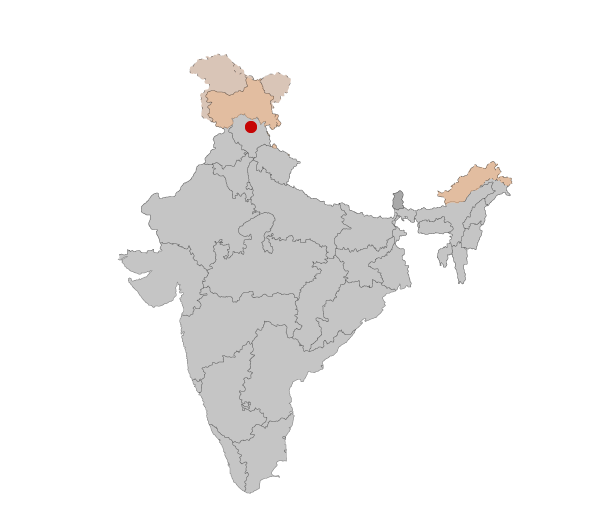No Transportation

L lived with his wife and son in a two-storey house.. L shared his home with his younger brother until the latter finished building his own house. L owned a farm where he grew wheat and rice, and the three brothers split the produce amongst each other. This left them with just enough produce for their respective families. However, “this year the wild pigs and monkeys ate most of it. We got only 20 kgs and have had to buy more from the shop,” he told us. His wife, B, took care of the housework and helped L on the farm as well. The daughter of tailors, in her spare time, she sewed clothes for herself and her sister by hand. Their son attends the nearest government school and their home is filled with all the sports trophies won by their son.
L was busy building a new kitchen on the second floor of his house and used locally sourced wood and tiles from the Dharamsala as building materials. The village governing body (Panchayat) had issued instructions for all villagers to build their own closed toilets, and so L and his family had access to a modern toilet.
L was part of India’s ‘untouchable’ castes but said that his life wasn’t impacted very much by that. “Earlier there used to be outright discrimination but now there isn’t much discrimination in everyday life.” The village head (sarpanch) did not discriminate against them, and though upper-caste households did not allow L or his family in their kitchens, he said that the discrimination was minimal. “In school everyone eats the same food, sits and plays together. You could not tell who is from the scheduled castes and who isn’t.”
